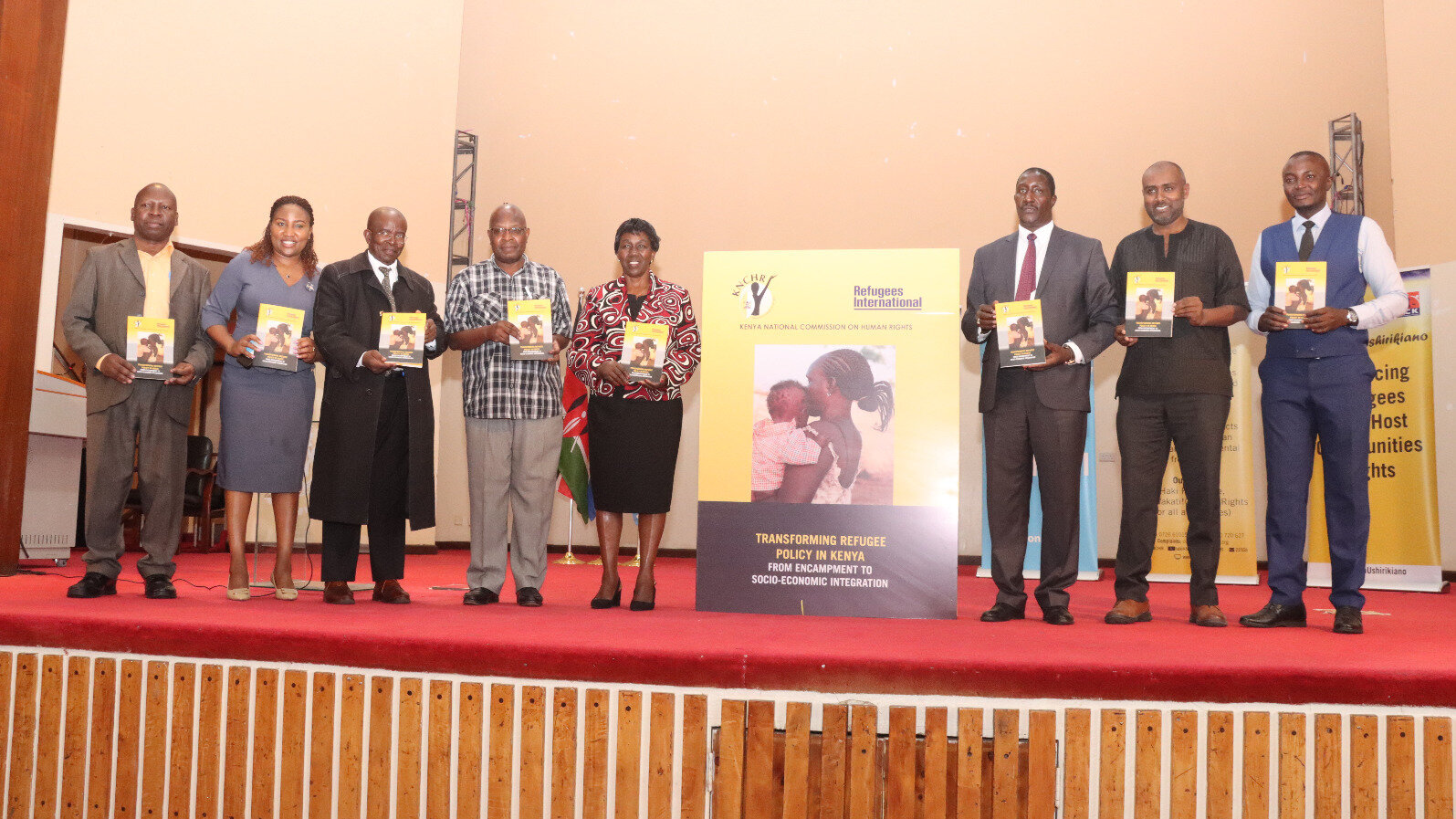Refugees face limited access to education, employment - Report

Participants during the launch of a new report on refugees' status in Kenya at the University of Nairobi. Photo/Gastone Musyoka
Refugees in Kenya face limited access to education, health care, and employment among other challenges, a new report has revealed.
The report by the Kenya National Commission on Human Rights (KNCHR) in collaboration with Refugees International and the University of Nairobi Center for Human Rights and Peace highlights the challenges and gaps that must be addressed by the Government and various stakeholders.
This, the report says, will ensure the smooth integration of refugees into Kenyan society through the host communities.
It examines the ongoing implementation of the Kenya’s Refugee Act of 2021 which seeks to transition refugee camps into integrated settlements.
The groundbreaking report outlines key challenges and opportunities in advancing the refugees’ rights and the socio-economic integration of refugees and host communities in Kenya.
Titled ‘Transforming Refugee Policy in Kenya: From Encampment to Socio-Economic Integration', the report also stresses the importance of harmonizing the refugee identity system to ease access to services, and reduce fraud.
It recommends that the backlog of unregistered refugees be cleared urgently to ensure dignity and access to necessary protections.
The integration of refugees through the government-led Shirika Plan, offers hope for refugees’ self-reliance, but significant work remains to close the gaps identified in the report.
"The successful implementation of the Refugee Act, 2021 will require coordinated efforts from all stakeholders, especially in addressing key issues such as education, housing, employment and freedom of movement," said KNHCR Chief Executive Officer (CEO) Bernard Mogesa.
Dr Mogesa who spoke during the launch of the report at the University of Nairobi (UoN), emphasized that refugees currently face significant barriers such as food insecurity, and limited access to education, health care and employment opportunities.
"Without addressing these challenges, refugees could struggle to become self-reliant within host communities that are already grappling with poverty, especially in refugees’ host counties such as Turkana and Garissa, where Kakuma and Dadaab refugee camps are located," he said.
The report calls for increased funding to improve infrastructure and services in these refugee hosting regions, while also recommending that the Department of Refugee Affairs be elevated to a semi-autonomous Government agency to ensure better functionality and direct funding from the National Treasury.
The Commissioner for Refugee Affairs John Burugu said concerns over freedom of movement and other refugee rights will be addressed through a new refugee identification system.
The identification card for refugees, equipped with advanced security features, will link to a database to streamline access to services and improve coordination with government agencies.

Be the First to Comment